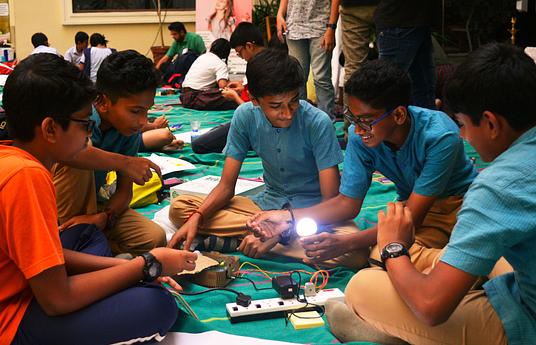Plastics - It’s cheap. It’s light. It’s safe. It’s hygienic. Imagine the COVID-19 pandemic without plastic! More than 8 billion tons of plastic have been produced since it was invented in the 1950s. And that only 14% of plastics are recycled, with 79% of plastic waste ending up in the landfill, clogging up the oceans. Be part of the change. Engage globally to change the lives! Move to alternatives
A sustainable future means a future that is ecologically, socially and culturally sustainable. Everyone is responsible for building a sustainable tomorrow. We can take part in many ways to secure the wellbeing of our planet and ourselves.
The vision is that one would take a plastic bag that is of no value, and instead of throwing it away, where it ends up in a landfill, it would turn it into something of high value that can change the economics of turning the rest of it into something that is of lower value.
Life-cycle assessment (LCA) is a tool that can be used to quantify lifetime environmental impacts in multiple categories, including climate change and energy use, water and resource depletion, biodiversity loss, solid waste generation, and human and ecological toxicity etc. United Nations created 17 Sustainable Development Goals and aimed to achieve them by 2030 through Sustainable industrialization, Sustainable production, Climate change and Land degradation sustainably.
Recently developed, Solar Bottle Lamp is a solar-powered light that is constructed from waste plastic bottles, P & G India becomes “Plastic waste neutral” Company, Making shampoo more sustainable by eliminating water-most useless ingredient, Boxed water-an eco-friendly alternative to plastic bottles, Byfusion has found a new way to reuse plastic that would never get recycled. We can all make a difference. Our main goal for the next 2-3 years to develop the full cope of sustainability including plastic pollution free green commitment, learning, knowledge, guidance, books, Policy and showcasing enviro achievements etc. to young educators. The power is in all of us consumers, producers, and policy makers, to contribute to a more sustainable and less wasteful future, for us and for the planet
Can be an introductory communication with Azizul (azizul.haque6602@gmail.com). There are several choices. Algae can be our next secret weapon to combat plastic pollution. Microalgae, for instance, are the most promising nature-based candidate capable of destroying microplastics. We also need improvements in plastic recycling, reusing, waste, reduction or substitution of plastic usage to end user.


